Seeking dignity and direct democracy
The leaderless protests are upending traditional definitions of leadership and forms of hierarchy. Instead, the protestors are seeking some form of direct democracy and dignity.
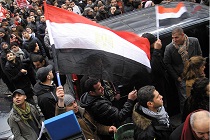 Courtesy: Jacques Delarue/Wikimedia Commons
Courtesy: Jacques Delarue/Wikimedia Commons
The leaderless protests are upending traditional definitions of leadership and forms of hierarchy. Instead, the protestors are seeking some form of direct democracy and dignity.
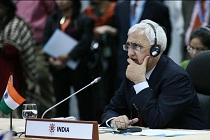 Courtesy:
Courtesy:
This daily column includes Gateway House’s Badi Soch – big thought – of the day’s foreign policy events. Today’s focus is on why the government should take a closer look at the kinds of data discovered by PRISM.
 Courtesy: European External Action Service/ Flickr
Courtesy: European External Action Service/ Flickr
The downfall of Egyptian president Mohammad Morsi was partly contributed by those thousands of protesters who disagreed with his view of “Us” and “Them”. Leaders such as Morsi have focused on persecuting those who refuse to share their vision; continuing down this path would have had a negative impact on history
 Courtesy: Foreign Affairs
Courtesy: Foreign Affairs
Legal justification and transparency of drone strikes have become a concern for the U.S. In reality, are these targeted killings advancing the strategic goals of U.S. counter-terrorism policy?
 Courtesy: MEAphotogallery/ Flickr
Courtesy: MEAphotogallery/ Flickr
In 2012, Iraq emerged as India’s second largest crude oil supplier thereby shifting focus back on bilateral relations. However, India’s historical and cultural connection with Iraq, as well as common geopolitical concerns, reveal that relations have the potential to go beyond oil
 Courtesy: NASA's Marshall Space Flight Center/Flickr
Courtesy: NASA's Marshall Space Flight Center/Flickr
An increase in the global demand for rare earth elements, used in high-technology industries, coupled with limited supplies on Earth, has accelerated extra-terrestrial exploration. International cooperation and competition for these space-based resources will determine the next human footprint and race in space.
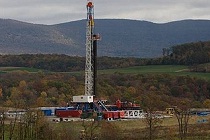 Courtesy: Penn State Outreach/Flickr
Courtesy: Penn State Outreach/Flickr
The significant shale gas deposits held by several countries, including India, have implications for global energy prices, geopolitics and climate change. But India needs to develop a strong shale gas policy that can help in lowering its trade deficit while ensuring sustainable development.
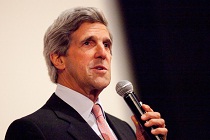 Courtesy: Center for American Progress/ Flickr
Courtesy: Center for American Progress/ Flickr
The upcoming India-U.S. Strategic Dialogue offers an appropriate platform to move past complaints both sides have against each other in the trade and economic spheres. The stage can be used to re-apply emphasis on strategic relations and reach levels of goodwill established during the time of former U.S. President George W. Bush and Manmohan Singh
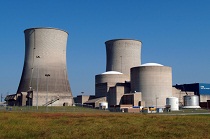 Courtesy: NRCgov/ Flickr
Courtesy: NRCgov/ Flickr
India-U.S. bilateral trade stands to benefit if U.S. Secretary of State John Kerry is able to seek clarification on the specificities of the Civil Liability for Nuclear Damage Act and alleviate the worries of American energy companies which fear paying monetary damages without limit in the event of a nuclear accident
 Courtesy: Center for American Progress Action Fund/Flickr
Courtesy: Center for American Progress Action Fund/Flickr
The U.S. Secretary of State’s visit to India comes at a time when India is witnessing significant realignments in its domestic politics while the U.S. is busy tackling its cyber-spying allegations. Amidst these preoccupations, will the upcoming India-U.S. talks churn out substantive outcomes?